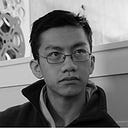
Member-only story
Goodbye to All That: Matthew Lopez’s “The Inheritance”
The next supposed “great work” about Gay New York starts but never begins
Matthew Lopez’s play The Inheritance, directed by sob maestro Stephen Daldry, has a scale that is like the breadth of New York, crowded and overwhelming, loud and busy, dramatic and exhausting, unwieldy and intoxicating and full of piss. Well, that’s the scale, at least, so I’m told by its aggressive marketing, its conjuring of images from Gay New York history past and present, its chore-like runtime.
That may be part of the appeal, frankly; the new supposedly great gay epic of theatre touching down onto the streets of Broadway after a much lauded run in London now has the opportunity to, it hopes, aim at gay New Yorkers’, and their allies, hearts. It is, after all, about “Gay New York”, a fairly contemporary vision of the social creature, reeling, more recently, from the 2016 election, and more literarily from the trauma of gay history and oppression. A loose adaptation and riff on EM Forster’s Howards End, The Inheritance concerns mostly three characters, and a few attached to them, and then a few others in their orbit. It’s about life, and death, and trauma, and history, and community, and art, and I know this because the play literally tells you as much in its opening five or six minutes of strangely amateurish writing, explicitly laying bare its thematic preoccupations like the opening paragraph of a high school essay. And it is about New York. New York is a character in lots of fictional texts, but Gay New York rarely gets its due in comparison. There are name drops of landmarks, so many name drops, of Film Forum, of BAM, of the New York Film Festival (erroneously implied to take place in November), of restaurants and theatres, bars, and The Strand Bookstore. So, The Inheritance, a play about many things but, for the sake of this short argument, a play about Gay New York (one that premiered in London) can take its place and perform for Gay New York. It’s a startling bit of meta-theatre, in a way; Gay New York as a stage to which many have emigrated, and a platform for those to perform not their ideal selves, but a version and an idea of their ideal selves, not yet necessarily fufilled. Like the play’s minimalist staging, featuring mostly just a platform that, when raised, looks…
